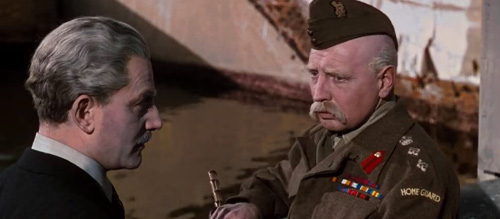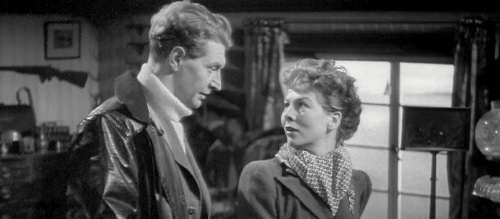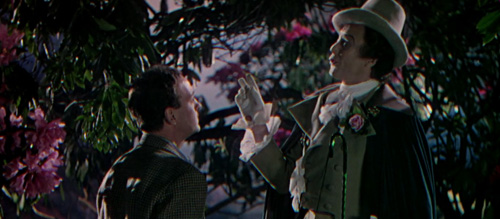Where to Start with Powell and Pressburger
Michael Powell and Emeric Pressburger, also known collectively as The Archers, were one of the most prolific and influential British filmmaking partnerships of the mid-20th Century. The unlikely duo – one an English Jack of all trades who had worked his way from the ground up in the film industries of France and the United Kingdom, and the other an intellectual Hungarian journalist turned scriptwriter who had fled from Europe after the Nazis’ rise to power – met by chance on a film in 1939 and became inseparable for the next decade and a half.
Much like the Coen Brothers, the pair shared writing, directing, producing and some editing duties between them, though unlike the Coens were not prevented from being credited for the work they actually did by antiquated guild rules. Most of their scripts began as Pressburger concepts, the screenplays passed back and forth from one to the other as most of the filmmaking responsibilities did, with Powell’s talents more geared towards directing and Pressburger to producing.
Many of Powell and Pressburger’s biggest hits were produced during WWII, and while they were initially employed to make morale-boosting propaganda films for the British Ministry of Information, such as One of Our Aircraft is Missing, their shared negative views on warfare did not remain disguised for long (much to the consternation of the wartime government), the pair’s political opinions suffusing the very fabric of their majestic, theatrical and very British productions.
The Archers made their films following a loose manifesto provided to collaborators, perhaps most admirable for its final two points:
- No artist believes in escapism. And we secretly believe that no audience does. We have proved, at any rate, that they will pay to see the truth, for other reasons than her nakedness.
- At any time, and particularly at the present, the self-respect of all collaborators, from star to prop-man, is sustained, or diminished, by the theme and purpose of the film they are working on.
The Archers can comfortably be considered among the greatest British filmmakers of all time and received numerous accolades over their 33-year, 19-film careers including Oscar nominations for 49th Parallel and The Red Shoes as well as the BAFTA Fellowship. Michael Powell has even had an award named after him, the Michael Powell Award, which has been awarded for Best British Feature at the Edinburgh International Film Festival since 1993.
With such an impressive body of work, particularly from their fruitful first decade of working together, where should you begin? We humbly offer this, one recommended route into Powell and Pressburger’s back catalogue, a list comprising of three films that sum the duo up as truly distinctive and hugely influential filmmakers, with the hope that your heart will lift a little when you see that tell-tale archery target production logo. This is Where to Start with Powell and Pressburger.
1. The Life and Death of Colonel Blimp (1943)

“You damned young idiot, war starts at midnight!”
Elderly British General Clive Wynne-Candy (Roger Livesey) looks back on his life as a career soldier in many costly conflicts over the decades, chiefly those memories connected to his unlikely friendship with a German, Theo Kretschmar-Schuldorff (Anton Walbrook), and the women they both loved (all played by Deborah Kerr).
Fresh off making propaganda films for the British war machine, Powell and Pressburger next mounted an epic that was considerably more critical of the true reasons behind human conflict. Humans are prideful, petty creatures you see, and the best you can hope for is to conduct yourself the best you can with honour while participating in brutal war.
The film is notable for its main characters who could be read as analogues for the filmmakers themselves – one a loud, opinionated but kindly Englishman, the other a quieter, more restrained but still passionate European, meeting by chance and becoming lifelong friends. Clive and Theo first come face to face in a duel that leaves them both marked, but their respect and gentlemanly understanding soon develops into true affection.
The portrayal of war itself is interesting here, with everything given a slightly fantastical, magical realist glow by genius cinematographer Georges Périnal. This is our world, our wars, but at the same time it isn’t. It’s a film about what war should be in an ideal world where it is fought by gentlemen, though even in this scenario it can change people irrevocably. Prime minister Winston Churchill detested it and thought it would damage morale through its anti-war messaging, but it can only have cheered up general audiences at the time.
2. I Know Where I’m Going! (1945)

“People around here are very poor I suppose. / Not poor they just haven’t got money.”
A self-assured and driven woman (Wendy Hiller) agrees to marry a knight of the realm she hardly knows and travels to the Inner Hebrides to live with him. Upon reaching her final destination she is continually frustrated by inclement Scottish weather and complicated further when she forms an unexpectedly strong connection with a local naval officer on leave (Roger Livesey).
Mismatched personality will-they-won’t-they romcoms became all the rage in the 1990s post-When Harry Met Sally, but Powell and Pressburger were already doing it way back in the 1940s in order to lift the public’s mood during WWII.
Hiller’s Joan is a tenacious sort and really bristles against anything not going exactly to her life plan. From her first meeting with MacNeil there’s a spark and it’s pretty obvious that no wedding engagement, class difference or acting recklessly in a once in a generation storm can keep them apart forever.
Despite the unforgiving Inner Hebrides climate that is so crucial to the plot, the film is warm, witty and full of the kinds of likably eccentric characters Pressburger loved. It’s about checking your privilege and appreciating what’s really important in life beyond money and status, a lesson still to be learned by many today. It also makes a real feature of the would-be couple striding over the vast Scottish landscapes (often filmed in wide shot with a double for a Livesey due to London theatre commitments) that, try as they might, can’t eclipse Joan and MacNeil’s true feelings for each other.
3. A Matter of Life and Death (1946)

“Nothing is stronger than The Law in the Universe, but on Earth nothing is stronger than love.”
RAF pilot Peter Carter (David Niven) is shot down over the English Channel, but due to an administrative error in heaven finds himself stuck in limbo until his case can be heard by a divine court, a case hinging on his love for June (Kim Hunter).
A Matter of Life and Death (AKA Stairway to Heaven in the US) is Powell and Pressburger at the height of their powers, their masterclass of craft, wit and theme. The Red Shoes and Black Narcissus might be even more critically beloved, but nothing can even come close to the heart and affection on show here. At various points a dreamy fantasy, a heady romance and an intelligently debated courtroom drama (the latter element built on the engaging performances of Roger Livesey and Raymond Massey), this is something truly special.
The film’s opening set piece in the flaming, crashing Lancaster bomber Peter has the misfortune to be piloting, with June over the radio agonisingly trying to work a way out of his hopeless situation as he cheerfully and pragmatically accepts his fate with a stiff upper lip, is perhaps the finest few minutes in Powell and Pressburger’s entire filmography.
The glorious Technicolor of the real world contrasted with the indifferent black and white of the afterlife was a bold stylistic gambit that really pays off. In a moment to rival Dorothy stepping into Oz and the colour seamlessly changing around her almost a decade earlier, angelic auditor Conductor 71 (Marius Goring) travels from heaven to Earth to correct his mistake and the rose on his lapel bleeds into vivid pink (making a quip about Technicolor straight to camera in the process).
A Matter of Life and Death Review
Powell and Pressburger were two titans of British cinema who held true to their beliefs and their principles over three lucrative decades of filmmaking. Their films always had something worth saying about the world but were constantly entertaining and beautiful to look at as well, most acclaimed and many quite rightly held up as classics by master filmmakers that followed, most notably Martin Scorsese. If these three films connect with you on any level, there are many more where they came from and all are well worth your time.
Let us know your thoughts on Powell and Pressburger in the comments below, check out the rest of The Film Magazine’s Where to Start with… series and be sure to follow @thefilmagazine on Facebook and Twitter for many more wide-ranging articles.


Very good, but in IKWIG Joan had met Sir Robert at CCI where they both worked, and he was a noble, a Sir, not a Lord. The cinematography on Blimp was done by Georges Périnal. Jack Cardiff just did some shots for the second unit.
Oh, and Mull (& Kiloran) are in the Inner Hebrides, not the Outer Hebrides
Noted, corrections on the way. Thanks for the feedback!
I must have Jack Cardiff on the brain from reviewing Black Narcissus the other week! He’s always inseparably linked to their work in my mind.
You can have worse things on the brain than Jack Cardiff :)